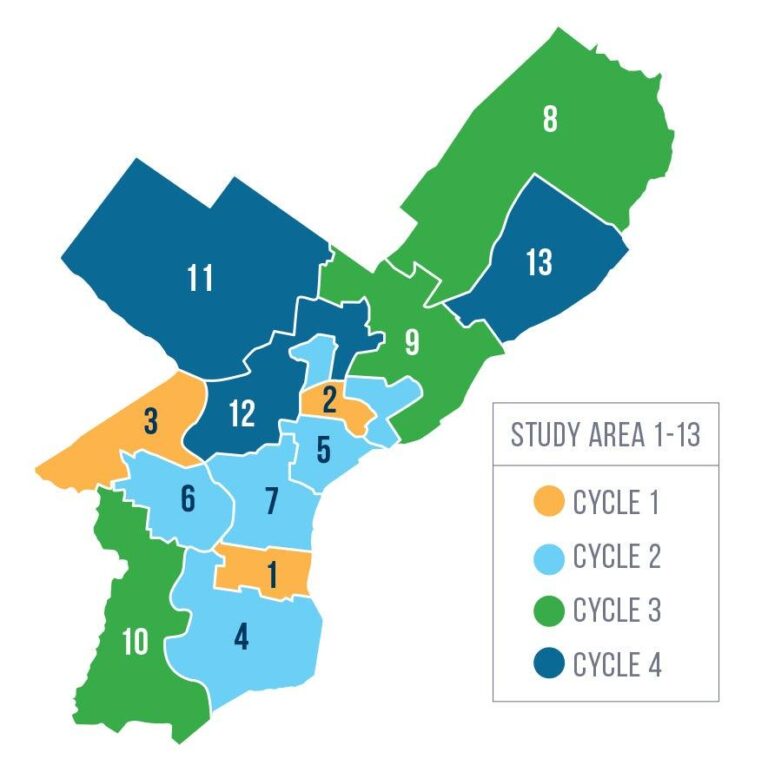Philadelphia School Districts Respond to New Federal Education Mandate
Analyzing the Effects of the Latest Federal Education Policy on Philadelphia Schools
School districts throughout the Philadelphia metropolitan area are currently scrutinizing the ramifications of a recent executive order issued by the Department of Education during the Trump administration. This directive introduces heightened accountability standards and calls for modifications to curriculum frameworks, prompting district officials to reevaluate their educational strategies and resource distribution. Superintendents stress the importance of a detailed review to gauge both the advantages and obstacles, especially concerning standardized testing protocols and eligibility for federal funding.
District administrators are concentrating on several critical factors, including:
- Deadlines for implementation and adherence requirements
- Effects on special education and support for at-risk students
- Adjustments in teacher training and ongoing professional development
- Strategies for transparent communication with families and local communities
| School District | Main Concern | Anticipated Adjustments |
|---|---|---|
| Philadelphia | Changes in funding allocations | Reevaluation of grant qualifications |
| Bucks County | Curriculum alignment | Conformance with federal education standards |
| Montgomery | Assessment procedures | Rescheduling of standardized tests |
Educators Raise Alarms Over Budget Cuts and Curriculum Revisions
Teachers and school leaders across Philadelphia’s districts have voiced significant apprehension regarding the executive order’s potential to slash essential funding streams. These funds are vital for sustaining extracurricular activities, special education programs, and technological advancements. Union representatives warn that the looming financial uncertainty could result in staff reductions and diminished support services for students who require additional assistance.
Additionally, the proposed curriculum reforms have sparked intense discussions within school communities. The emphasis on patriotic education, coupled with a possible reduction in comprehensive social studies content, has raised concerns about limiting students’ critical thinking skills and undermining efforts to foster inclusivity and cultural awareness. Key issues highlighted include:
- Potential funding reductions threatening program continuity
- Curricular shifts that may sideline diverse perspectives
- Decreased local control over educational content decisions
- Possible layoffs leading to larger class sizes and fewer support staff
| District | Projected Funding Reduction | Likely Consequences |
|---|---|---|
| Philadelphia | $12 million | Cutbacks in arts and STEM initiatives |
| Bristol Township | $3.4 million | Increased student-to-teacher ratios |
| Abington | $2.1 million | Reduction in special education offerings |
Recommended Approaches for Managing Federal Education Policy Changes
Experts in educational administration advocate for flexibility and proactive engagement as districts respond to the shifting federal landscape. They encourage fostering strong partnerships among district officials, educators, and community members to harmonize local policies with federal requirements while prioritizing student success.
Suggested tactics to effectively manage these transitions include:
- Thorough policy audits: Conduct regular evaluations to ensure compliance and identify improvement opportunities.
- Targeted professional training: Provide educators with specialized instruction on new regulations and innovative teaching methods.
- Open communication channels: Keep parents and stakeholders informed through consistent updates and forums.
- Data-informed decisions: Utilize performance metrics to assess program effectiveness and guide adjustments.
| Strategy | Primary Advantage | Recommended Frequency |
|---|---|---|
| Policy Audits | Ensures adherence to legal standards | Every quarter |
| Professional Training | Enhances staff preparedness | Twice yearly |
| Open Communication | Builds trust within the community | Continuous |
| Data-Driven Adjustments | Maximizes program impact | Monthly |
Community Advocates Demand Transparency and Enhanced Support
Local education advocates and experts are calling for greater openness from school districts regarding the changes prompted by the executive order. They argue that lack of transparency erodes public confidence and risks leaving marginalized students underserved. Community leaders stress the necessity of sustained funding and clear, ongoing communication between the Department of Education and local schools to guarantee equitable educational opportunities.
Highlighted community priorities include:
- Frequent updates on budget changes and program modifications
- Inclusive forums involving parents, educators, and students
- Detailed transparency reports outlining effects on disadvantaged groups
| Focus Area | Community Expectation | Department of Education Response |
|---|---|---|
| Funding | Boosting resources for under-resourced schools | Under review with possible adjustments |
| Transparency | Quarterly public progress disclosures | Not yet scheduled |
| Stakeholder Engagement | Regular town hall meetings and community forums | Initial sessions planned for next quarter |
Final Thoughts
As Philadelphia-area school districts continue to interpret and respond to the recent federal education executive order, educators and administrators remain committed to steering through these changes amid ongoing uncertainties. The collective focus on transparent communication and collaborative problem-solving aims to keep student welfare at the center of all decisions. With further developments anticipated, local districts are expected to refine their compliance strategies and deepen community engagement, reflecting the dynamic nature of education policy in the region.








